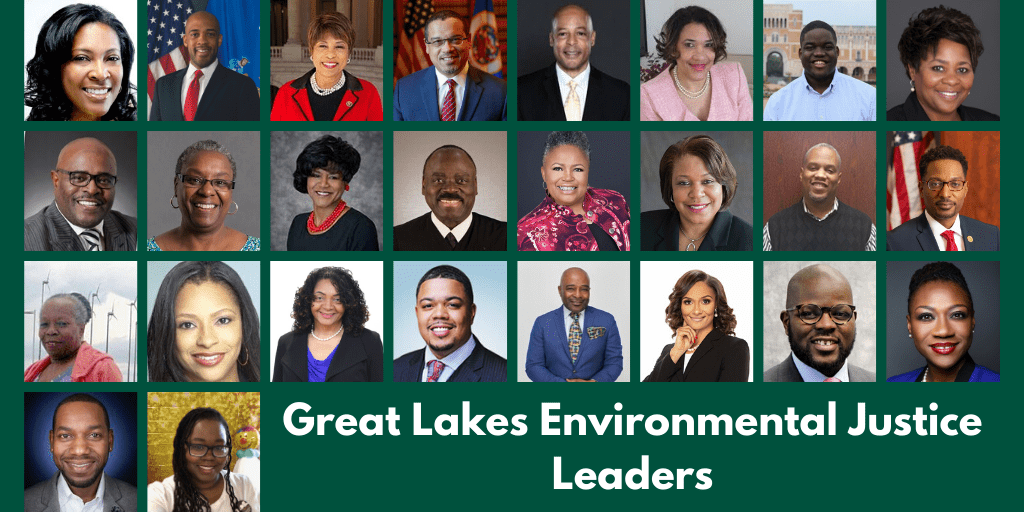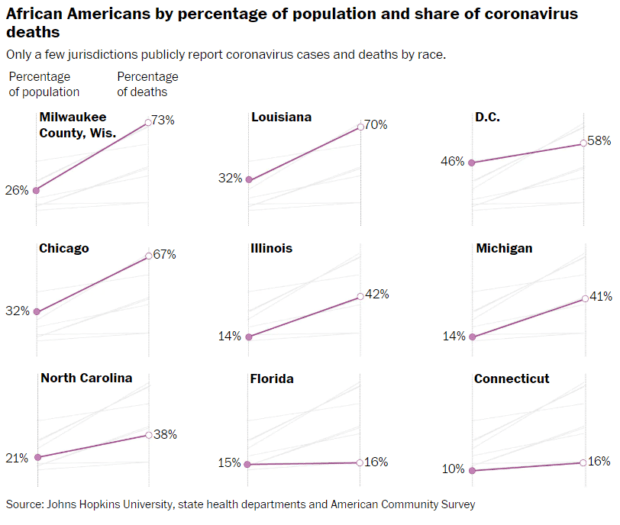We have much more to do and your continued support is needed now more than ever.
Voices from the Great Lakes: Black Leaders Unite for Environmental Justice
Elected and community leaders lead the way for their constituents.

For generations, black leaders across the country have been leading the fight for environmental justice, to ensure that historically marginalized communities have access to clean air, clean water, and climate resilient neighborhoods.
The passive and active exclusion of Black Americans from environmental movement leadership and policy-making has weakened collective fights for climate action and biodiversity. The environmental justice movement has run parallel and, in moments of greater multicultural inclusivity, intersected with broader conservation and environmental movements. Healthy communities and healthy habitats cannot reach their potential unless Black Americans are welcomed as equal partners, problem-solvers, and advocates.
The COVID-19 pandemic has further highlighted the inequities in access to health care, clean air and water. For example, frequently washing hands—an advised public health habit—is not feasible for families experiencing water shutoffs. As Black Americans represent a disproportionately high percentage of the deaths from COVID-19, it’s vital that the solutions proposed by Black leaders are valued and incorporated in federal design of equitable policy to address the pandemic and subsequent relief efforts.

In striving for more equitable and authentic collaboration, the National Wildlife Federation-sponsored roundtable—the first of 7 around the country—elevated the voices, concerns, and solutions of black environmental and public health leaders in the Great Lakes region. Held virtually to ensure the safety of the participants during the COVID-19 pandemic, the intensive discussion featuring 31 leaders highlighted the need for urgent policy solutions.
Learn more about these environmental justice issues—and solutions—that are essential in ensuring future relief and environmental legislation can benefit all communities across the country.
Access to Clean & Affordable Water
The fight for clean water is a core component of the environmental movement. But water shutoffs and persistent inadequate access to clean water prevent people from being able to abide by one of the most basic public health measures to prevent the spread of COVID-19: washing your hands.
“Water rates have actually gone up over 400% of the last 20 years and over 120% in the last 10 years,” said Monica Lewis-Patrick of We the People of Detroit.
Learn more from Monica Lewis-Patrick >>>
Housing
COVID-19 relief packages could boost investment in climate-smart, energy efficient affordable housing. Minnesota Attorney General Keith Ellison suggests that relief legislation could reduce the gap between available housing units and the increasing demand during the economic downturn.
Learn more from Attorney General Ellison >>>
Mental Health
The COVID-19 pandemic has strained community services and highlighted the need for holistic health care that values mental health. Dr. Karen Weaver, a clinical psychologist and former mayor of Flint, Michigan, shared her concern for communities struggling with the loss of loved ones, careers, and vital support networks.
Learn more from Dr. Karen Weaver >>>
Need for State & Federal Action
“We need an Environmental Protection Agency that actually enforces the protections that we have for our air, water, land and people,” said Wisconsin Lieutenant Governor Barnes. From investment in a clean energy economy to health care, federal and state action can help recovery and protect communities throughout the Great Lakes and across the country.
Learn more from Lt. Governor Barnes >>>
Pandemic & the Census
Tameka Ramsey of the Black Women’s Roundtable spoke to the shift in her organization’s community support with the onset of the COVID-19 pandemic. In addition to distributing food to folks in need, Ramsey is also leading efforts to ensure Detroit communities are counted in the 2020 Census. Black communities are historically under counted in the Census, worsening the already inequitable distribution of federal environmental resources. Ranging from water infrastructure to affordable housing to grants for conservation work, historic disinvestment can be traced, in part, to inaccurate Census counts.
Learn more from Tameka Ramsey >>>
How Can You Help?
Help spread the word on Facebook and Twitter about these policy issues and solutions that can help create healthy communities in the Great Lakes and across the country.
And learn who your Congressional and state leaders are, so you can advocate for equitable, environmental solutions!






















